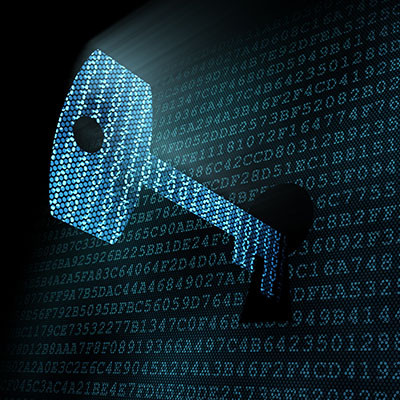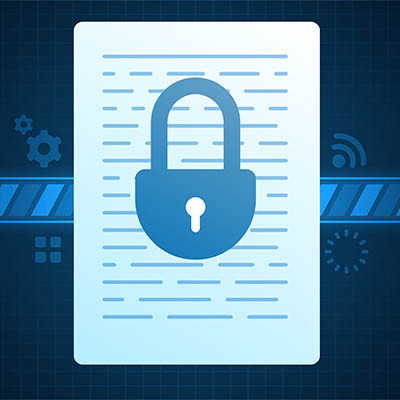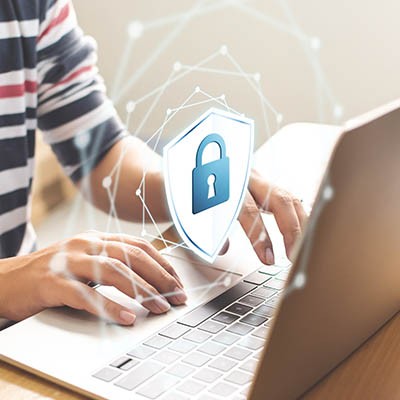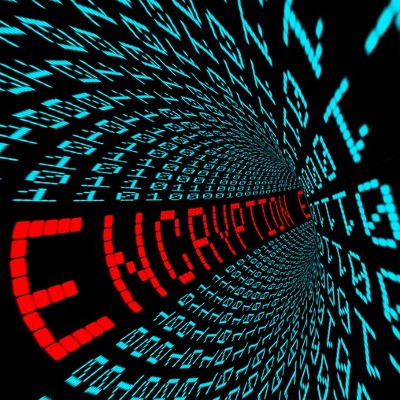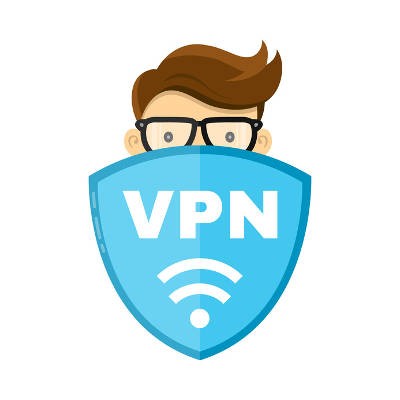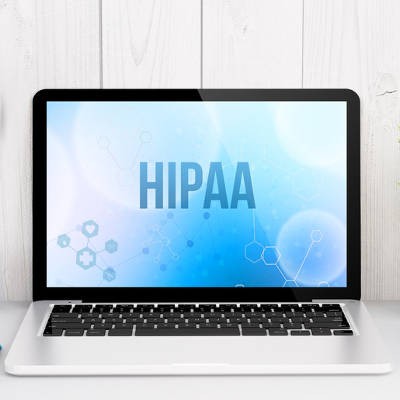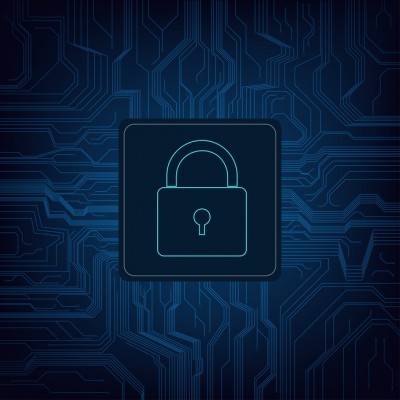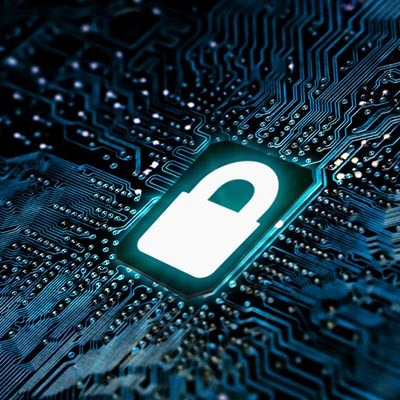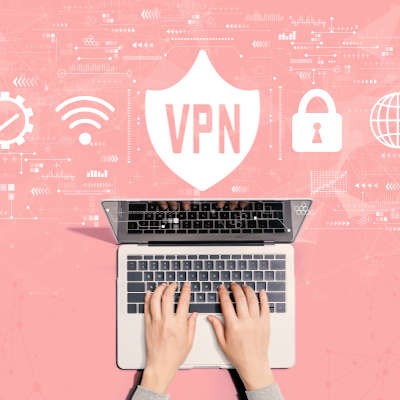Encryption is a powerful weapon against hackers that can prevent them from stealing your data and leveraging it against you. Encryption, in its most basic textbook definition, converts your readable data into an indecipherable jumble that can only be reassembled through the use of an encryption key. Small businesses absolutely must utilize encryption to protect customer information, financial records, and other important or sensitive business data. This ensures that it is as protected as possible against those that might do you harm.
The Connection, Inc Blog
Most organizations are trying to figure out how to secure their IT against the constant flood of threats out there. Unfortunately, the biggest threat out there isn’t something that you can actively protect against. Can you guess what it is?
Unfortunately, it’s your employees, and their potentially lax password practices—and while you can’t really protect yourself against insecure passwords, you can minimize the likelihood that they’ll be used.
The term “encryption” has found its way into the mainstream, appearing just about anywhere information security is brought up. Whether it is ransomware encrypting data or the encryption protecting your password security, it is a powerful tool that can be used for both good and evil. Let’s discuss the former and how you might use encryption in the workplace.
Data security always needs to be considered as one of your most important business priorities. After all, the ramifications of data loss are wide-reaching and severe. To help you ensure that your data security is at the level it needs to be, we’ve put together five questions you need to answer regarding your business’ security preparedness.
Data might be the most important aspect of your organization, but how well do you protect it throughout your network? Every organization has data like personally identifiable information and financial credentials stashed away somewhere on the network, so security isn’t something that you can ignore. One of the best ways you can safeguard your data is through the use of encryption.
Encryption is a solid way of keeping hackers from using data that they’ve stolen from you to their benefit. While other security solutions like firewalls and spam blockers try to limit the number of threats that make their way onto your network, encryption focuses on being a last-ditch effort to save your data from being used against you. Encryption jumbles your data, making it difficult--if not impossible--for hackers to use. Therefore, encryption works best when combined with other security measures.
Here are three of the ways in which encryption benefits any business prioritizing data security.
Encryption Maximizes Security
Encryption is a priority for a business that wants to keep security at the max. Taking risks is simply unacceptable, and encryption has a chance to make any attempts made by a hacker a moot point. Data encryption works by scrambling your data, only unlocking it when it’s exposed to a specific security key. Hackers prefer going after data that’s easy to access, so encrypted data is sure to be an asset for your organization.
Encryption Augments Compliance
While encryption isn’t officially required by compliance laws like HIPAA, it certainly protects your interests by having it. Compliance laws generally only need your organization to implement preventative solutions like firewalls and antiviruses, but encryption is still of the utmost importance. Encryption is mainly useful for making sure that any breaches don’t result in compromised data, as hackers likely won’t be able to decrypt your data anyway.
Encryption is, More or Less, Expected
It’s understandable that you want encryption for your own data, but if you are a service-type business that provides products to clients, they are going to expect that you’ll take good care of their data, as well. For example, if you use a service like PayPal or Amazon, you expect them to use encryption to keep your payment information safe and secure. You can safely assume that your own clients will want to believe their data is safe in your hands. If their information is stolen and it’s your fault, they won’t take kindly to it, and you will lose points with them in the long run.
If you want to use encryption for your business (and you should), The Connection, Inc can help. To get started, give us a call at (732) 291-5938.
Does your business focus enough on security? One of the best solutions that you can consider is a virtual private network, or VPN. By implementing a VPN solution, you can improve the security and privacy on your devices even while out of the office on important business trips or at conferences. What can a VPN do for your business?
Essentially, a VPN can mask your traffic so you can access your company data securely while out of the office. It does this through powerful, military-grade encryption protocol that scrambles your data while it’s in transit. The data is then decrypted when it has reached its destination, keeping hackers from taking advantage of any data that they stole while you’re out and about. It’s an important asset that lets your organization and its employees remotely access data while on the road on mobile devices.
The VPN’s primary use is to access important information on your business’s network without worrying about the data being swiped by hackers. This lets your workers continue to be productive even when they aren’t in the safety of your in-house network. VPNs can even allow your business to keep a virtual desktop running, which can let your workers access their in-house desktop without being in the office.
Of course, priority #1 should always be security, especially considering the fact that cybersecurity is such a problem for businesses of all sizes. Criminals take full advantage of advances in technology just like security professionals do, so leaps and bounds in security developments also present new challenges for hackers to overcome.
Now, what if you’re on a business trip and you need to access your data? While your hotel or coffee shop might have a Wi-Fi password, there’s no way that you can guarantee its security (since you’re not the one managing it). If you access sensitive data over this connection, there’s a chance that hackers could be lurking in the shadows, watching and waiting to make their move. They don’t even have to be in the same room as you. They could be down the hall with the shades pulled over the window, watching your every move on the network, or they could be at the diner down the street.
The point we’re trying to make is that public Wi-Fi is unpredictable and dangerous if you aren’t protected. A lot can be said about the person whose data is being stolen, and a hacker can use that data to their advantage. A VPN can protect your business’s assets, even when you’re out of the office.
We’ve seen other uses for VPNs, as well. They are often used to ensure privacy of residents or secure access to websites that are protected by geographic restrictions. For example, China has outlawed the use of VPNs since they are often used to get around the Great Firewall, giving citizens access to information that they otherwise would not be able to view. Other countries continue to follow suit, including Russia, Iran, Iraq, Turkey, and Venezuela. While this makes it more difficult for businesses in these countries to secure themselves, just think about the implication that this presents. VPNs are so secure that countries known for censorship and cyber espionage are banning them because they conflict with their agendas. It’s impossible to regulate traffic that’s encrypted like this, so they flat out ban the technology.
If your business wants to ensure protection while on the go, a VPN is a good start. To get started, reach out to The Connection, Inc at (732) 291-5938.
The Internet is rife with potential threats. Some are situational, but most are deliberate actions made by malicious entities who are trying to obtain any semblance of value from you or your company. Some of these exploits have been around longer than you’d imagine possible. This has been made evident by huge Internet-based companies such as PayPal and Facebook testing positive for a 19-year-old vulnerability that once allowed hackers to decrypt encrypted data.
Back in 1998, researcher Daniel Bleichenbacher found what is being called the ROBOT exploit in the secure sockets layer (SSL) encryptions that protect web-based platforms. There is a flaw in an algorithm that is responsible for the RSA encryption key--through specially constructed queries its error messages divulge enough information that after a short time they were able to decrypt ciphertext without the dedicated key for that encryption. In response, SSL architects created workarounds to limit error messages rather than eliminating the faulty RSA algorithm.
Referred to as an “Oracle” by researchers, the crypto-vulnerability provides only decisive yes and no answers, which allows people that form their queries a certain way to eventually retrieve detailed information about the contents of encrypted data. This is called an “adaptive chosen-ciphertext attack”.
Recently, researchers have found that over a quarter of the 200 most-visited websites essentially have this vulnerability, and about 2.8 percent of the top million. Facebook, the most visited website in the world for 2017, is one; while the money transfer platform PayPal is another. The explanation researchers gave was that with so much time focusing on the newest and baddest malware and exploits, this tried and true vulnerability has just been neglected. In a blog post they said as much:
“The surprising fact is that our research was very straightforward. We used minor variations of the original attack and were successful. This issue was hiding in plain sight. This means neither the vendors of the affected products nor security researchers have investigated this before, although it's a very classic and well-known attack.”
The vulnerability, now called ROBOT, an acronym for “Return of Bleichenbacher's Oracle Threat” was tested, with the findings being sent to the vulnerable sites to ensure they could get a patch created before the researchers went public with it.
Understanding the threats that are being used against businesses can go a long way toward helping you keep yours secure. For more information about the ROBOT vulnerability or what we can do to keep your company’s network secure, contact The Connection, Inc today at (732) 291-5938.
As we discuss business technology, we occasionally broach topics that not everyone may be familiar with. Despite the recent media coverage that has been afforded to it, Bitcoin and blockchain technology may be a good example of one such topic. To resolve this, we’ve put together the following primer on this technology and how it will impact data security in the future.
To Begin, An Introduction To Bitcoin
Bitcoin is a digital currency that exists exclusively in code form, without any physical coinage or paper monies representing it. All it takes to get Bitcoin is some higher-end computer hardware (even commercially-available hardware will work) that a user can then use to “mine” the cryptocurrency, effectively inventing the money. However, Bitcoin is in finite supply, and requires intensive computing resources to work for a considerable amount of time to generate even the smallest amount. Many online stores have begun to accept Bitcoin as tender.
At the time of this writing, Bitcoin has risen in value to be worth thousands of dollars apiece, up from as low as $.08 in 2009.
An Introduction to Blockchain
True to its name, a blockchain is a chain of ‘blocks’ containing information, connected in sequence to allow secure and reliable accounting for the information it contains. Blockchain was first used in 1991 to enhance the security of timestamped documents, as it prevented them from being altered. More recently, blockchain has been dubbed “The Internet of Value” considering how it functions in a similar way to a database. However, a traditional database and a blockchain are different in quite a few ways.
The blockchain gives a user a digital ledger of the activity of the data it contains. The encrypted data is confirmed, distributed through a number of linked transactions and replicated for each user that accesses it. The itemized and uneditable nature of the blockchain makes it an excellent candidate for relaying certain varieties of information, including currency and cryptocurrency, shareholder information, and medical records.
How Blockchain Is Put to Use
Despite most users having not yet heard of it, many industry professionals have deemed blockchain as the “new Internet.” Indeed, many of the technologies that currently leverage centralized hosting could see some significant benefits by shifting to a blockchain-based distributed hosting strategy. For example:
- Security: As history has proved for many companies, it is safer to keep multiple copies of data in disparate locations. Data’s decentralization through blockchain makes that easier.
- Data Management: Blockchain makes the verification data more robust through its complete transformation.
- Logistics: Companies and consumers alike can enjoy more transparency, as individual goods are traceable back to their point of origin.
- Investing: Investments, including crowd-based funding, are given improved security and reliability through the use of blockchain.
- Internet of Things: Blockchain can be used to accomplish a few purposes that concern the IoT, including to serve as a platform for remote systems automation, and reducing the privacy issues associated with IoT endpoints.
How Blockchain Relates to Bitcoin
You might have seen Bitcoin appearing in the news more and more often during recent weeks. This trend, as well as the creation of more new cryptocurrencies, has been boosted by the spreading use of blockchain technology. Bitcoin has a cap of 21 million, which protects it from inflation.
However, today’s miners use Application Specific Integrated Circuit (ASIC) systems to do their dirty work, but as in the gold rush, a multitude of new miners have appeared as the value of Bitcoin has ballooned. This has forced Bitcoin miners to come up with new strategies so that they have a chance of hitting pay dirt, technologically speaking. Now, instead of seeking out full Bitcoins, miners seek out small pieces of the cryptocurrency in pools of data.
Bitcoin is a currency that has a value completely dependent on the market for it. Since it leverages blockchain technology, if there’s Bitcoin up for grabs, it is for real.
Speculation puts the value of Bitcoin at $250,000 each by 2024, when about 95% of all Bitcoin will have been released. The demand for Bitcoin has spilled over to investments, as financial institutions have begun to push investors toward Bitcoin futures. This only goes to show how much confidence there is in Bitcoin and, by extension, blockchain technology.
It won’t be long before the blockchain is common knowledge, but until that time, we are happy to have shed some light on the tech that will spur the Internet of Things and the future of currency onward and upward.
So, do you have any cryptocurrency to your name, Bitcoin or otherwise? Do you see digital currency shaping the future of our finances? Share your thoughts in the comments section!
If your work requires you to store medical data, you should be aware of how important your data security is, as a problem could potentially put your business at risk of closing up shop permanently. Security has to be a priority with so many regulations setting compliance standards that must be followed. How can you balance the effectiveness of your business without undermining its security?
The cloud is such an important part of today’s business environment that most organizations use it to some extent, even if it’s just for basic storage needs. However, the cloud needs to be properly maintained, starting with the way you secure your cloud services. Take a moment to ask yourself if your cloud--whether it’s hosted on-site or by a provider--is safe and secure.
Here is a list of four major issues that many organizations have regarding their cloud security.
End-to-End Encryption
To protect data on your network, the most effective method is to encrypt it. Encryption jumbles the data, making it difficult for hackers and other malicious entities to read the data unless they have also stolen an encryption key to decrypt the files. Encryption is there to put the user’s mind at ease, as it provides the knowledge that even in a worst-case scenario, your data is safe.
Physical Security Measures
If you don’t host your data on-site, you need to make sure that the data center you use is protected against not just digital intruders, but invaders who would use physical access to infiltrate the systems. You should have some combination of armed security patrols, biometric authentication procedures, and monitoring to keep intruders out. If you host in-house, you need to consider many of these same solutions. You should always have your servers being monitored, while being stored in the most secure locations possible.
Compliance Regulations
Various industries are subject to specific compliance laws that need to be adhered to, lest they face fines that could cripple even the soundest budget. For example, any business that uses health records to any extent is subject to HIPAA, or the Health Insurance Portability and Accountability Act. This means that they must take specific measures to protect any of this information or face steep fines.
Standard (Scalable) Security Measures
The same security measures you want to use in-house should also be protecting your cloud-based infrastructure. These measures include antivirus, firewalls, a spam blocker, and content filter. All of these measures are implemented to keep your cloud solution as safe as can be from any threats bold enough to attack, whether they are internal or external. An enterprise-level Unified Threat Management solution is critical to the success of this endeavor, and it’s the best way to make sure your business’ assets remain secured.
The Connection, Inc can help your business keep its cloud resources secure. To learn more, reach out to us at (732) 291-5938.
When encryption is discussed, one of its high points that business professionals try to hammer home is that it’s more secure. But what does encryption really mean for businesses? Does it adequately protect data and devices? We’ll walk you through a brief rundown of how encryption works and the role it plays in keeping your business secure.
A virtual private network (also known as a VPN) is something that more and more businesses are using, especially now while most of the workforce is now working from home. As a means of encrypting data while it is in transit, the use of a VPN enables you to transmit assorted types of data more safely. Of course, not all VPNs are the same, and so you need to be careful to select the right solution for your needs.
Let’s go over a few considerations you should keep in mind.
Why Do I Need a VPN?
Look at it this way: in a normal situation, how often do you find yourself accessing the Internet as you’re out and about--more specifically, checking on business matters and sending and receiving business data? Any time you do so (or otherwise access the Internet) your data is susceptible to being spied on and/or intercepted on its way to its destination.
Thanks to the coronavirus pandemic currently in place, we’re far from a normal situation. Now it is more important than ever to give your workforce a secure way to access company data.
This should make the importance of a VPN to businesses of all sizes only too apparent.
What to Look for in a Business VPN
There are fundamental differences between a VPN designed for consumer use and one designated for a business. A personal-use VPN allows your selection process to be boiled down into what is pretty much a simple value-based decision: which option gives me the protection and speed for the best price? Personal VPNs tend to protect home users from being tracked online. It’s yet another layer of protection, but they aren’t really designed for business.
However, a business has different needs than an individual user, the primary one being the fact that the end-user isn’t necessarily the one who should be controlling the VPN’s use.
To address this exact issue, business VPNs are designed to allow for centralized management, something that consumer-focused VPNs do not. With a business VPN, you have the power to make sure each user is protected by the VPN in a simple way.
Additionally, different types of VPNs exist to fulfill different needs. There are remote access VPNs, which are the better-known variety that preserves privacy and protects data while it’s in transit. There are also site-to-site VPNs, which allow users working on different networks to access resources from the others’. This is particularly handy in large businesses with multiple locations, as they allow data to be shared between locations conveniently and without any risk to security.
This has just been a brief introduction to the VPN-selection process. If you’re serious about putting one into place, or even if you just want to learn more about them, reach out to The Connection, Inc. Our team can help evaluate your situation and recommend the best course of action for you, as well as help you fulfill your business’ IT needs. Call us at (732) 291-5938 today.
 Businesses today are responsible for keeping the data in their care safe from hackers. There are two kinds of data that a business must protect: the information of their customers, and their own data (eg. company policies and employee information). Which of the two do you think the average business does a better job of protecting?
Businesses today are responsible for keeping the data in their care safe from hackers. There are two kinds of data that a business must protect: the information of their customers, and their own data (eg. company policies and employee information). Which of the two do you think the average business does a better job of protecting?
 It’s natural to replace older technologies with better, more recent models. However, the future isn’t looking too bright for the world’s most common website encryption method, SHA1, which will soon be replaced by a more secure protocol. Pretty soon, browsers and devices may have some difficulty reading the latest security certificates, which could cause quite a problem if it’s not remedied.
It’s natural to replace older technologies with better, more recent models. However, the future isn’t looking too bright for the world’s most common website encryption method, SHA1, which will soon be replaced by a more secure protocol. Pretty soon, browsers and devices may have some difficulty reading the latest security certificates, which could cause quite a problem if it’s not remedied.

